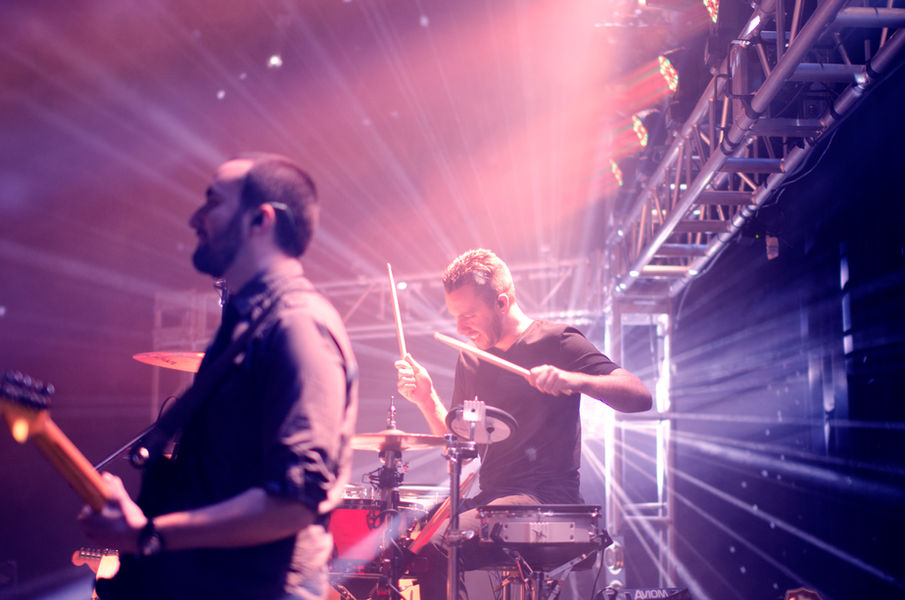SHE LOVES ME
Millikin University
Nick Dunk
Sound Engineer & A1
Director: Kevin Long
Sound Designer: Terry Bivins
Lighting Designer: Matt Albrecht
Scenic Design: Ken George
Costume Design: Jana Henry Funderburk
A2: Mary Stefanski

The Shop Build
The build process was very short and fast. The majority of the output side of the system was Kirkland's (the venue) house system, but the majority of the input side and signal processing was SOTAD equipment. I had a few racks to build, some light programming, software and firmware updates, and testing of multiple systems to make sure everything was playing nice before load-in. An entirely digital system is great to work with when everything is working, however, that always means more shop time dedicated to testing and troubleshooting. With the tight schedule, I was able to get the system tested and loaded into its boxes just in time for load out.
Along with the usual long task list for a large-scale musical sound system build, there was a request from the sound designer and the props department to have a functional ringing phone on stage. A few of the photos below show moments of the troubleshooting process as I worked to interface a Tele-Q with Qlab 4. The system was basically made up of three steps. First Qlab would send a midi trigger for every "ring on" and "ring off". That midi signal would be received at the console triggering a respective (on/off) snapshot with only the GPO scope on. That GPO would bring the remote pin on the Tele-Q to the ground pin and send the ringing voltage to the stage. This way the sound designer could program the ringing times with precision while also reducing all of the sound cues in the show to a single GO button. The console control group snapshots were also triggered from QLab through midi.
Load In/Quiet Time
The sound load-in was efficiently run by paperwork and very little problem solving as most of the work was done in the shop. Below is all the paperwork I made for this show in order to keep myself and the rest of the sound team on the same page. The efficiency of the load-in, quiet time, and the entire tech process is entirely due to adequate pre-planning and plenty of documents to support it.
I tuned the system with the assistance of the shop using Smaart Di and a measurement microphone that was moved around the room to make countless measurements. We used Waves plugins to give us precise EQ control to tune the EAW PA system. We did not have the ability to move any speakers, so all adjustments were made in the console's delays and EQs in SoundGrid. Smaart then ran for the duration of the tech process and through the shows in order to monitor the system during runs. Since the majority of the sound system ran through one DANTE network, The A2 and myself were both able to monitor multiple aspects of the system (wireless, DANTE, console remote, preamp control, and QLab) from FOH or our SL deck sound position.
Due to copyright law, audio examples are available only upon request.











